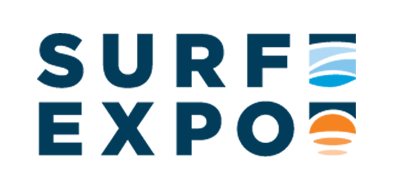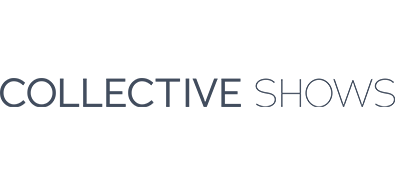Roark, one of the strongest emerging brands to come on the scene in the past few years, is forming a partnership with the La Jolla Group, which will allow the young brand to tap into La Jolla’s sophisticated infrastructure.
La Jolla Group is the apparel licensee for the O’Neill, Metal Mulisha and FMF brands.
The Roark Revival is an adventure lifestyle brand that follows a bar-brawling hellion named Roark around the world, creating apparel and trinkets inspired by each seasonal adventure.
Roark will remain its own entity, with its own headquarters and complete control of its brand. LJG will earn equity in Roark, but it is a minority share that is non-controlling.
La Jolla’s approach has become more collaborative under CEO Daniel Neukomm, who took over the leadership role in 2013 and brought a technical and analytical approach to the business.
In addition to Roark, the La Jolla Group has a similar partnership with the activewear brand Spiritual Gangster.
Daniel and Roark Founder and President Ryan Hitzel are unveiling the new partnership at a Town Hall meeting for La Jolla Group employees this morning.
They answered some questions for SES about the new alignment.
How will this new arrangement work?
Ryan Hitzel: Roark and La Jolla Group have forged an innovative partnership that provides Roark with an incredible suite of back-end operational support. Roark continues as an independent brand focused on creative, product design, marketing, sales and brand leadership supported by La Jolla Group’s operational expertise including finance, accounting, logistics, technology, HR, planning and sourcing. I see it as a turbo boost for one of the most challenging pillars of a small business.
Daniel Neukomm: La Jolla Group (LJG) and Roark are entering into an innovative partnership, something very new for our industry and one that aligns long term interest as well as current infrastructure and expertise. LJG is taking over back-end operations of the business (Finance, Logistics, Technology, HR, planning tools, etc.) and Roark drives Sales, Product (M&D) and Marketing with the support of the LJG “tool kit.”
This is an ideal partnership that helps de-risk a growing brand while ensuring support and continuity for the front end Roark team so they can focus on retailer and consumer-facing aspects of the business that they thrive with.
Is this a licensing deal?
Daniel Neukomm: No, it is intentionally not a licensing deal. This is a joint venture/strategic partnership with aligned interests, infrastructure and expertise unattainable in the standard licensing model.
Why does this arrangement work for Roark?
Ryan Hitzel: Our team has spent four years building a brand that is differentiated and that people are inspired by. As with any small brand we’re often bogged down with operational challenges that we just don’t have the resources to prevent or solve efficiently.
With so many retailers taking a chance and investing into Roark, the last thing we’d want to do is not deliver during the most crucial period of our growth. This partnership allows us to thrive operationally while remaining in control of our own destiny and brand.
Roark is at its best on the road bringing back stories and product that inspire our fans to travel. I’m thrilled to know that the back-end operational aspects of the business are in good hands when we’re out of range. The partnership will allow Roark to scale effortlessly and be armed with all of the tools a $200 million dollar brand has.
Daniel Neukomm: I think Ryan and the Roark team saw an opportunity in the market that retailers are clearly supportive of, with regard to emerging brands as well as the need to secure both short-term scale and long-term execution capabilities.
I imagine Ryan saw a number of different ways to do this: self-fund growth, take on a financial partner, or take on a strategic partner who was more deeply aligned than just a service provider. Ryan identified the latter as ideal due to similar struggles he and I both observed when a brand simply raises money to reactively build infrastructure and expertise that operators such as LJG have doubled down on in the past couple years. We’ve seen many brands try the two former options with limited success and few exceptions.
Why does it work for La Jolla Group?
Daniel Neukomm: The partnership is a result of observations from both Ryan and myself of a highly dynamic retail climate thirsty for innovation both creatively and operationally. I observed retailers thirsty for small brands to help balance out diversity on the floor and drive traffic/sales, but I also observed small brands struggle to execute against expectations set by large brands.
Furthermore, we now live in a climate where retailers are even more reliant on partnership and execution from brands of any size. I have been focusing LJG on back-end operating sophistication with the ability to both scale and deploy it creatively to support that mission. Our analysis, and discussions with both brands and retailers led us to Roark as an ideal brand in an ideal position, with existing expertise and a clear vision.
On a separate but equally important note, I believe that La Jolla Group is in the business of adding value for our retailers by any means necessary. This is simply a creative way to both support that value proposition while at the same time become a “force multiplier” for an emerging brand with whom we are aligned.
Ryan Hitzel: La Jolla Group is a gold level operator. They’ve developed a machine that is ready to be deployed on a business like ours. I think Daniel and his team are eager to share the system, technology, economies of scale and operational expertise with a strong growing brand like ours.
They are very proud of what they do and they get kind of giddy thinking about how it will help Roark.
Is La Jolla Group looking to do similar arrangements with other brands?
Daniel Neukomm: Perhaps, but we are very satisfied with our newly evolved portfolio. As you know we entered into a similar partnership with Spiritual Gangster, a high-growth/profile yoga inspired brand, which we believe proves our operating platform has deployable capabilities beyond action sports. And while O’Neill continues to be a large part of our business, it’s interesting that the infrastructure and expertise fueled by O’Neill in the past is broadly scalable and deployable for the future of LJG.
We are armed with a strong platform for success and while we believe our thirst is currently quenched, we remain objectively open to all possibilities and closed to none.
Will La Jolla help Roark with financing as well?
Daniel Neukomm: Yes. LJG will help facilitate and manage trade finance though our partner, Wells Fargo, as well as help mitigate expense through economies of scale across the business.
LJG will also add value though sophisticated financial planning tools, guidance and processes which have been instrumental in our success during the past couple years. Again, our goal is to free up the front-end team led by Ryan to focus on what they do best – tell great stories, execute great product, and drive a great sales strategy.
Collectively this both de-risks the business as well as fuels growth, which inherently helps finance the business both directly and indirectly.
Does Roark have the financing it needs?
Ryan Hitzel: We do have the financing we need to grow. We have a great trade relationship with Wells Fargo that I’m super pumped on that will become the cornerstone to our long-term growth.
As far as equity financing, we’ve had an extremely supportive partner over the past few years and have added a small group of high caliber, value-add investors that are important beyond just capital. It’s rad to know that at any moment we can get advice from someone who’s been in the trenches before and is invested in Roark for more than just a return.
Daniel Neukomm: Yes, Roark does have the financing it needs, both through trade and equity finance. A large part of our attraction to Roark was not only the access to investment dollars but also the high caliber of the investors themselves whom we are excited to align with.
What systems will Roark have access to that it didn’t have access to before?
Daniel Neukomm: A wide range of either entirely new, or at the very least enhanced versions of the same systems. Examples of this include fundamental systems such as PLM, e-commerce platform and ERP, but almost more importantly a powerful set of custom-developed enterprise dashboard reporting tools which fuel internal and external sales, M&D, marketing, finance and operations to allow for seamless integration to the LJG platform.
LJG departments will also help guide things like demand planning, technology, supply chain management, cash flow modeling, and more.
Brands in the industry used to start small with minimal infrastructure all the time – why do new brands need this level of support today?
Ryan Hitzel: Roark started with minimal infrastructure in a cottage in Laguna Beach, Calif. four years ago. But the industry has changed along with retailers and the broader trends in commerce.
Small brands can’t make a ton of mistakes, and face far different demands in the current marketplace compared to 10 years ago. It’s much easier for a small brand to get knocked off course now with trends moving so fast, smaller margins and challenging economic flows. Solid infrastructure and operations mitigate that risk.
Daniel Neukomm: The state of action sports and the broader retail climate has undergone a massive systemic shift, and we now live in a different marketplace. Present market dynamics put far more pressure on all brands regardless of size. But for small brands the need to be continually more reactive to the consumer, while creating better product faster and cheaper, all the while partnering with retailers to evolve in synchronicity demands an increasingly higher level of creative and operational sophistication.
As we can all see, brands both large and small are challenged to navigate these same dynamics. We believe in our analytically driven tool kit to help us not only navigate but thrive in this new environment.
How do you envision Roark’s growth trajectory changing because of this deal?
Ryan Hitzel: Our goal is not necessarily just to steepen our growth, but also to ensure that it doesn’t plateau. Roark’s growth and value will be enhanced by the harmonization of all aspects of the business. On the front end, it’s going to allow our core team to focus on brand building, creative, product design, marketing and sales like we never have before. On the back-end, operations will hum and become reliable for our retailers, while our sourcing Rolodex and access to best-in-class manufacturers will yield higher quality product with enhanced margin and terms.
From 30,000 feet, I think the broader concept of the deal is for LJG to provide Roark with the tools, staffing, financial management and structure to scale our business seamlessly. Operationally there won’t be speed bumps to slow us down at the major inflection points. Our trajectory will just gain momentum as a result of the partnership.
Daniel Neukomm: We will have an accretive impact on growth trajectory from a variety of angles. First and foremost, freeing up the front-end team to focus on marketing, product and sales without having to worry about all the operational nuances and complexities that distract from the task at hand will certainly enhance the overall trajectory as well as quality of the business.
Second, the operational economies of scale we bring to the table frees up resources that can be re-allocated towards the front-end drivers, which will compound growth.






